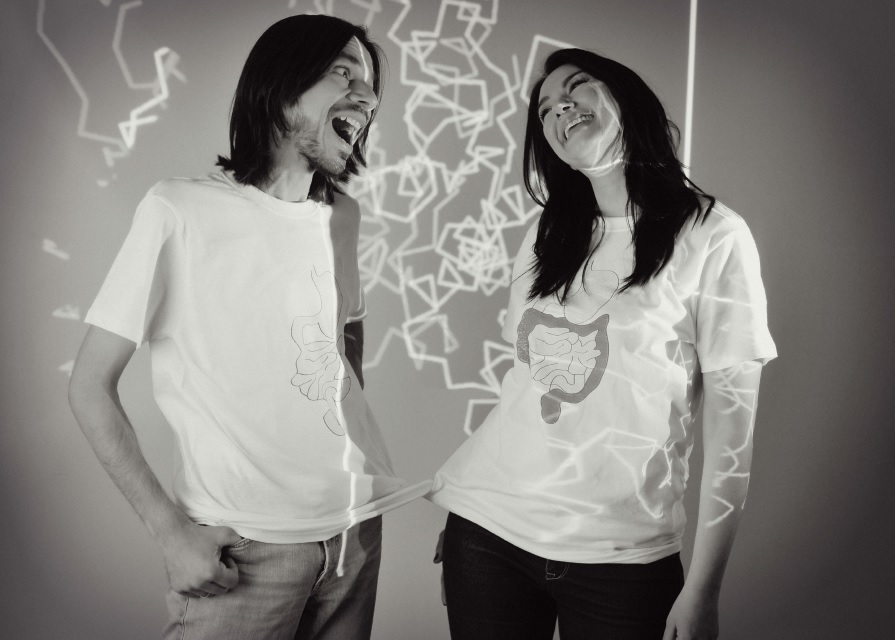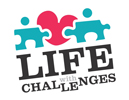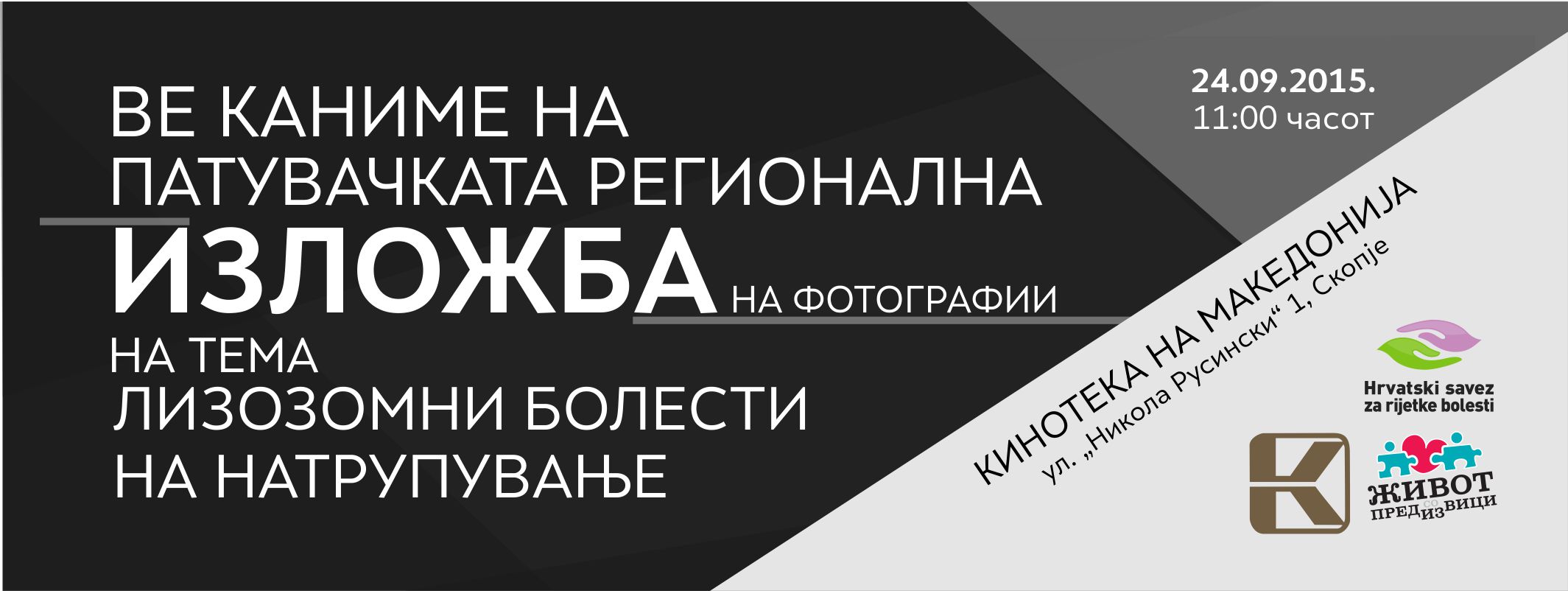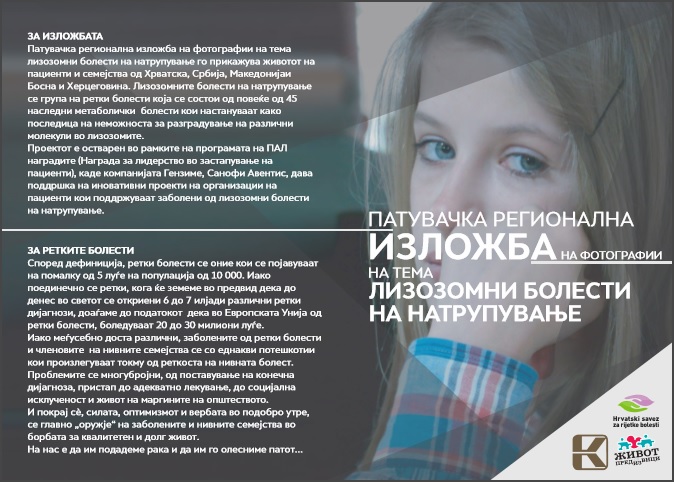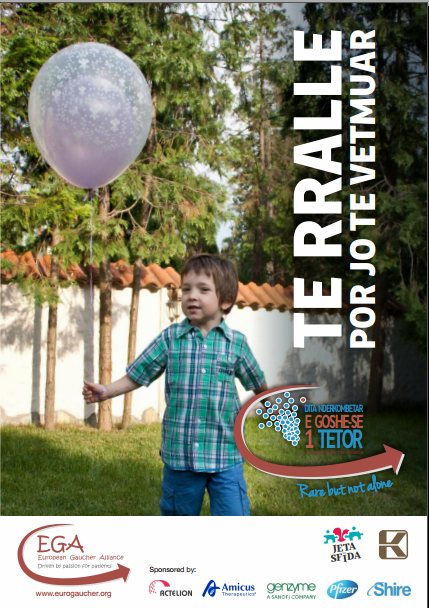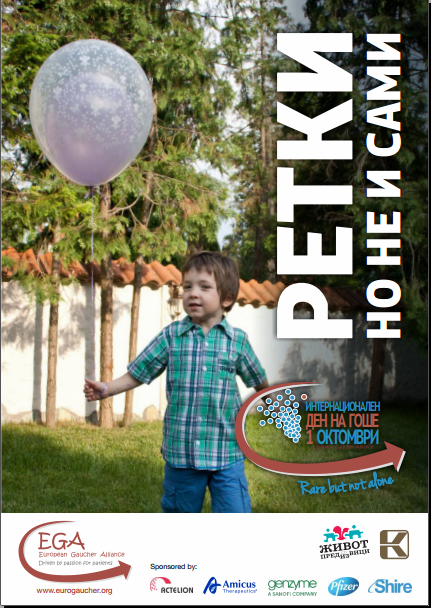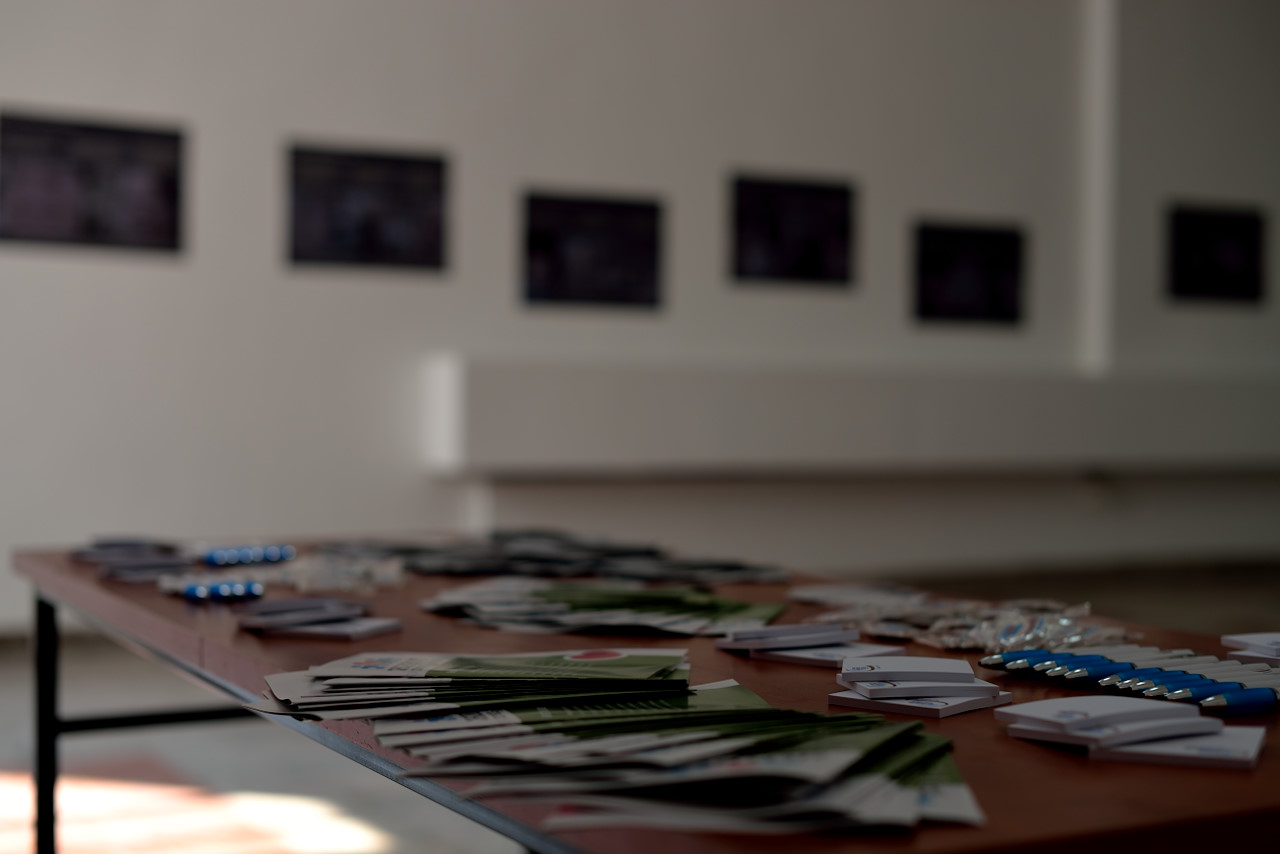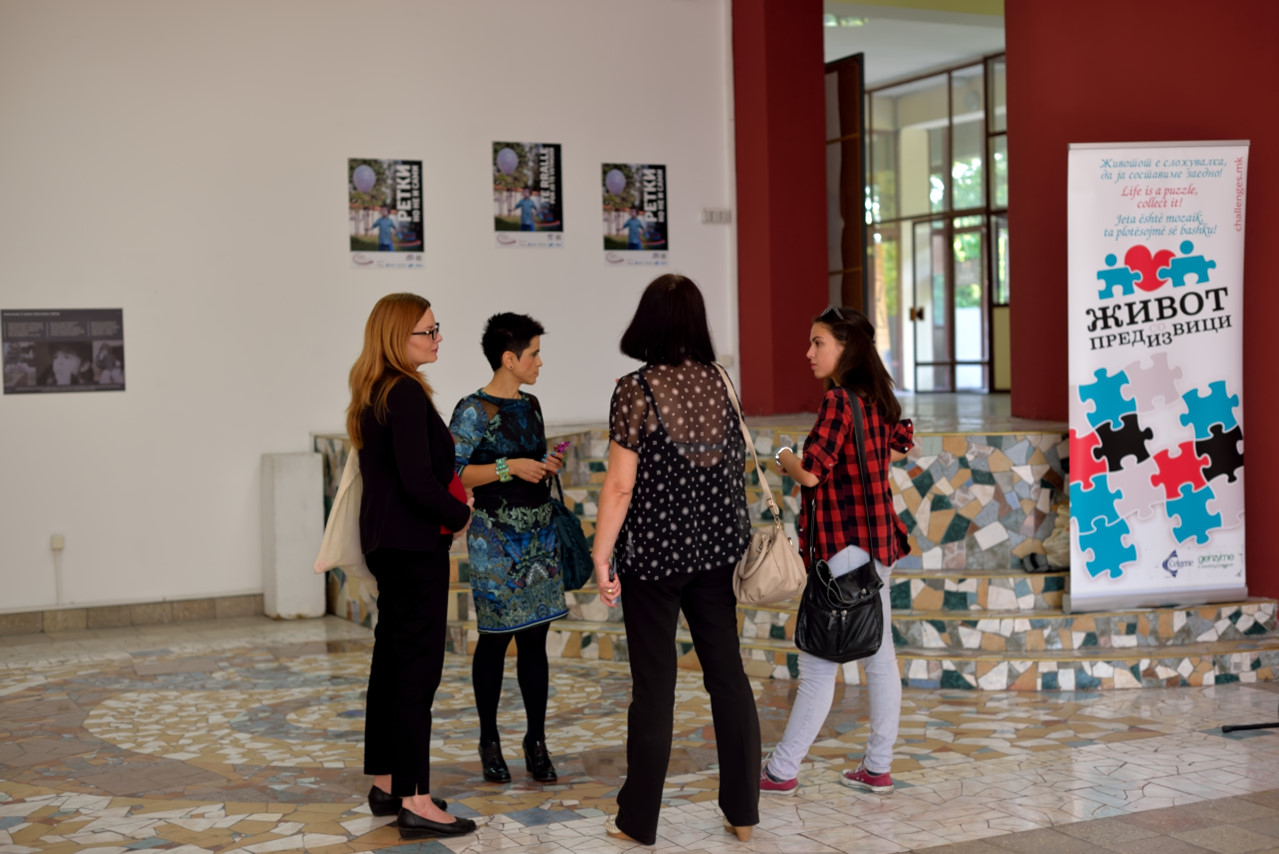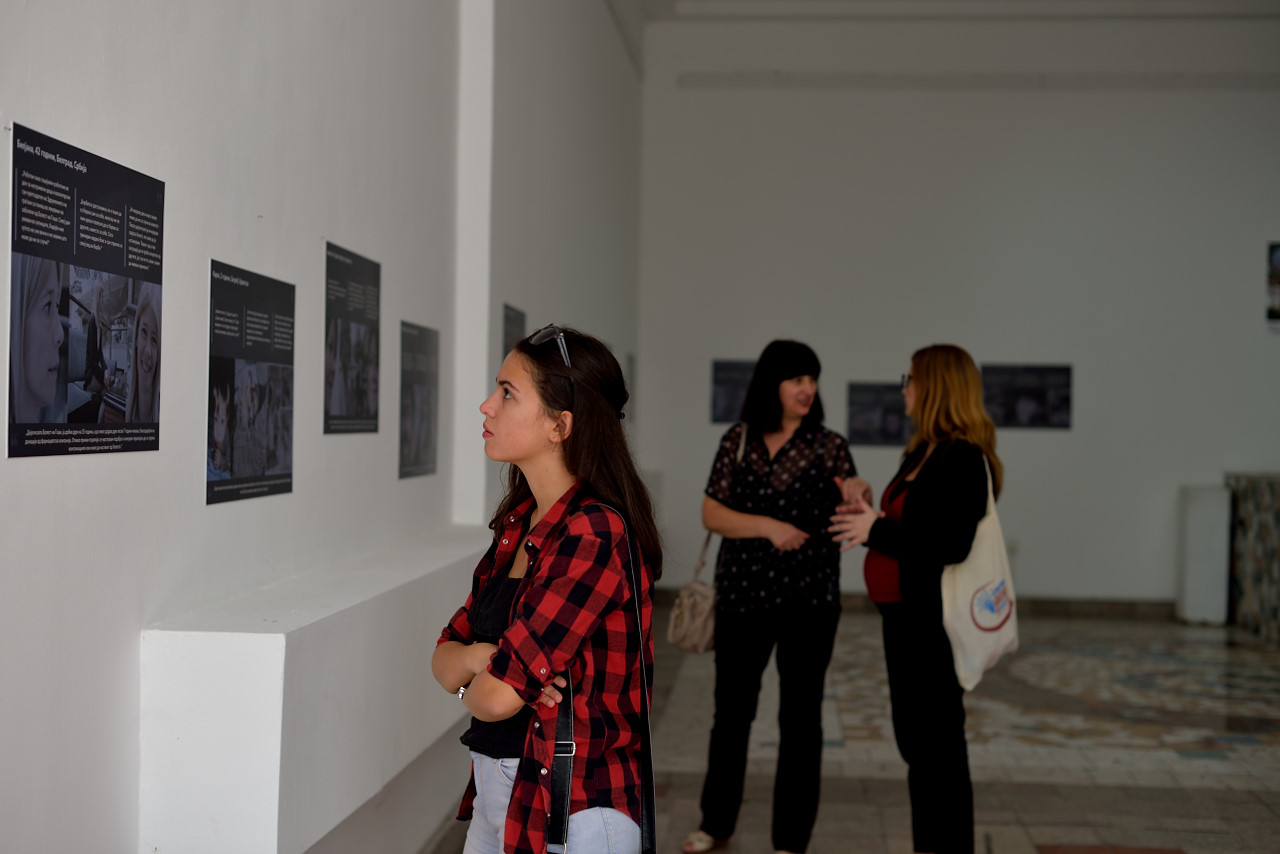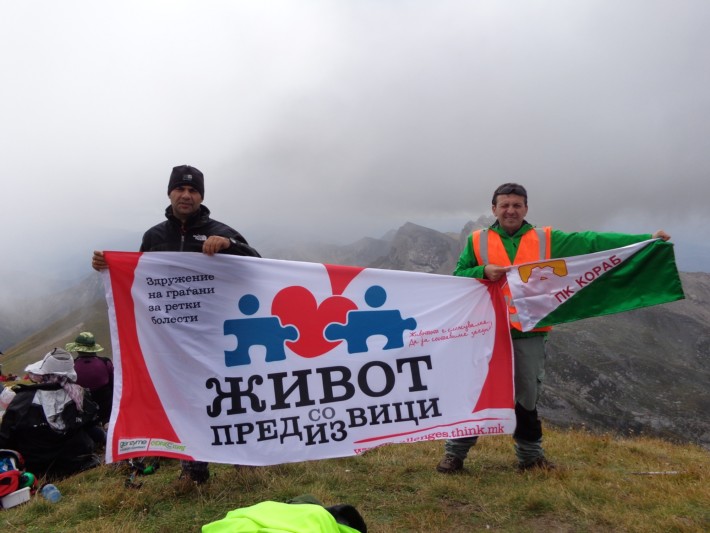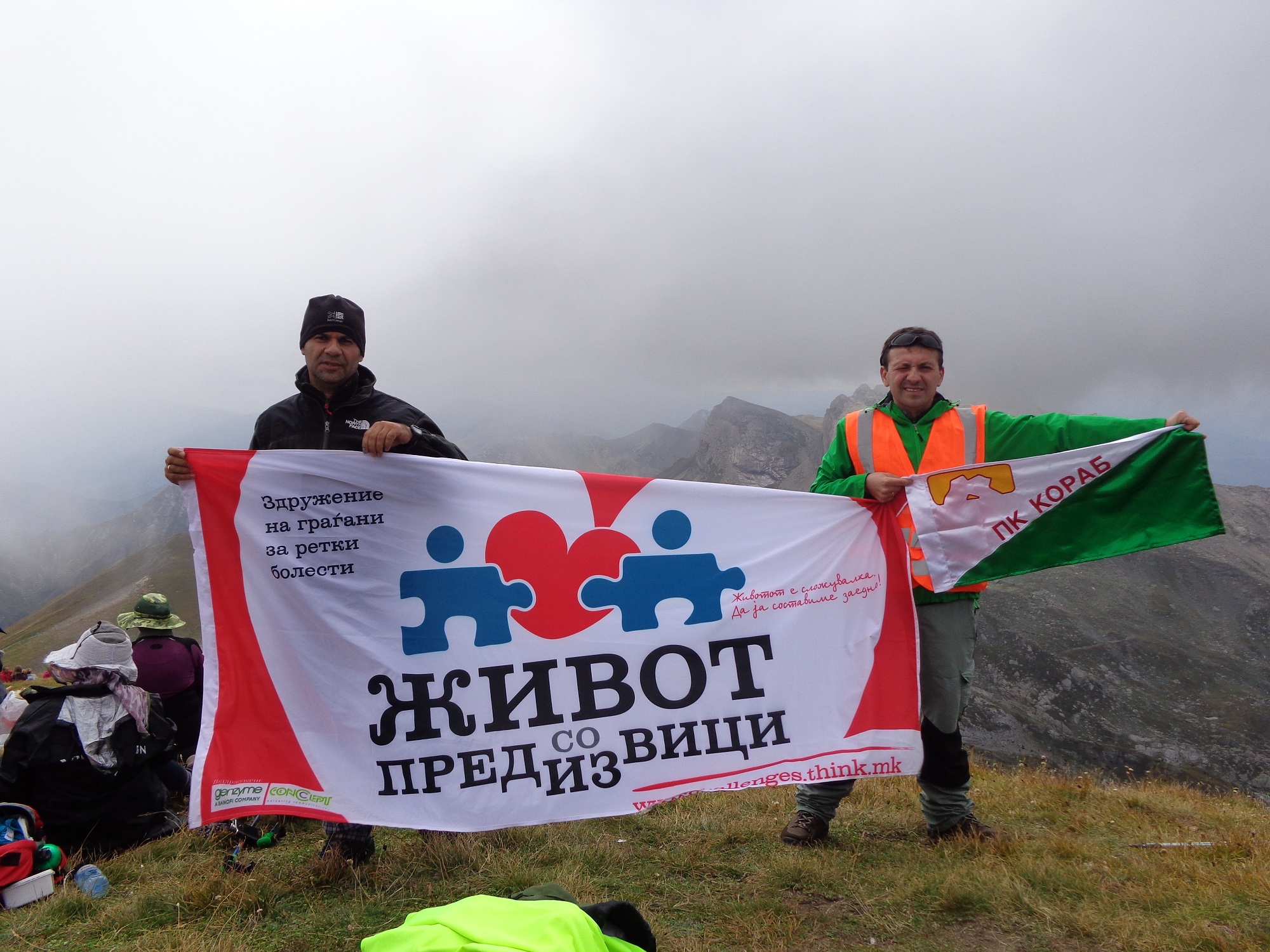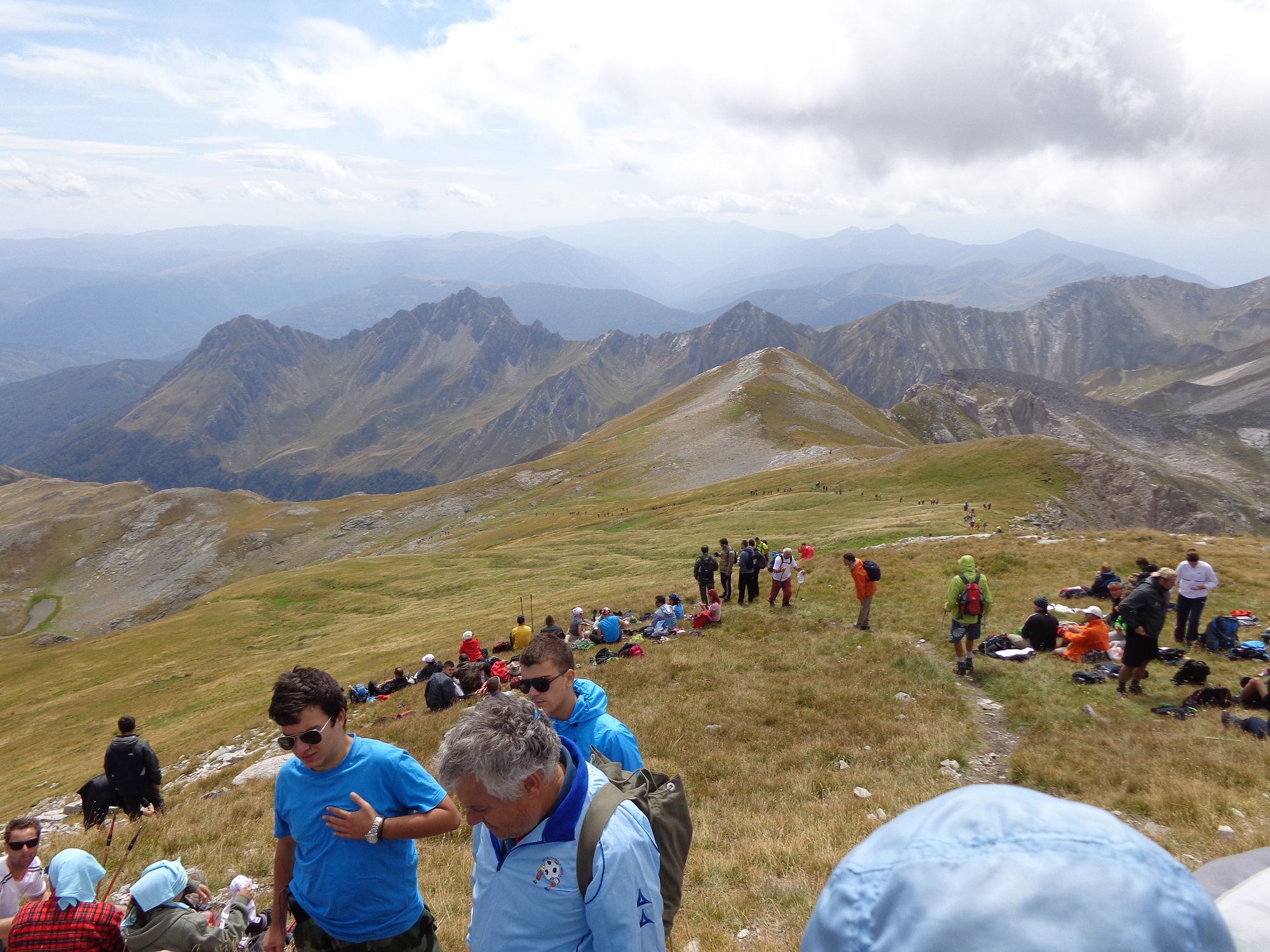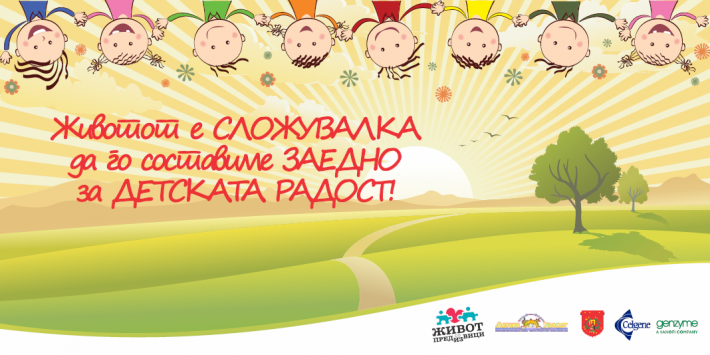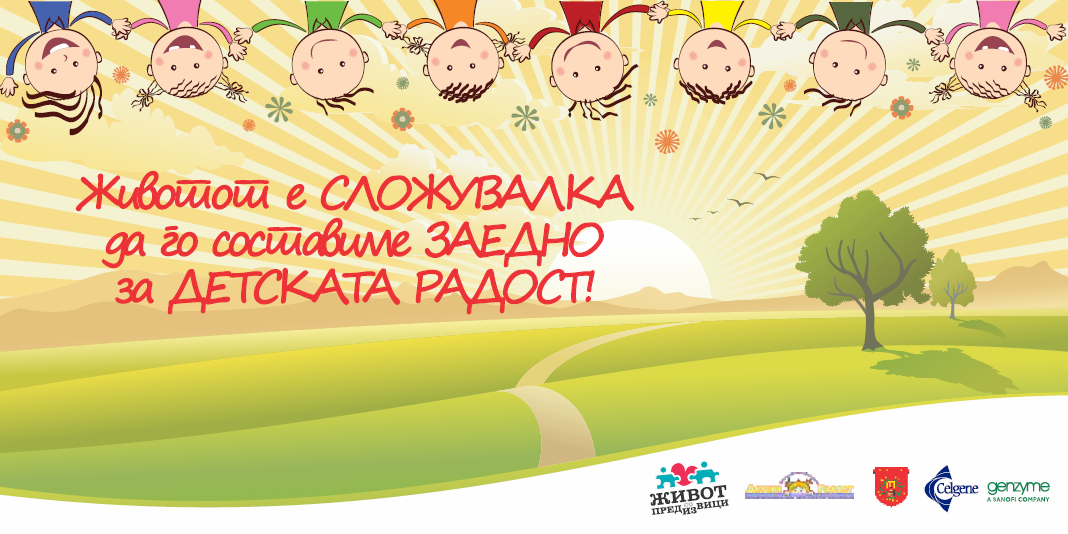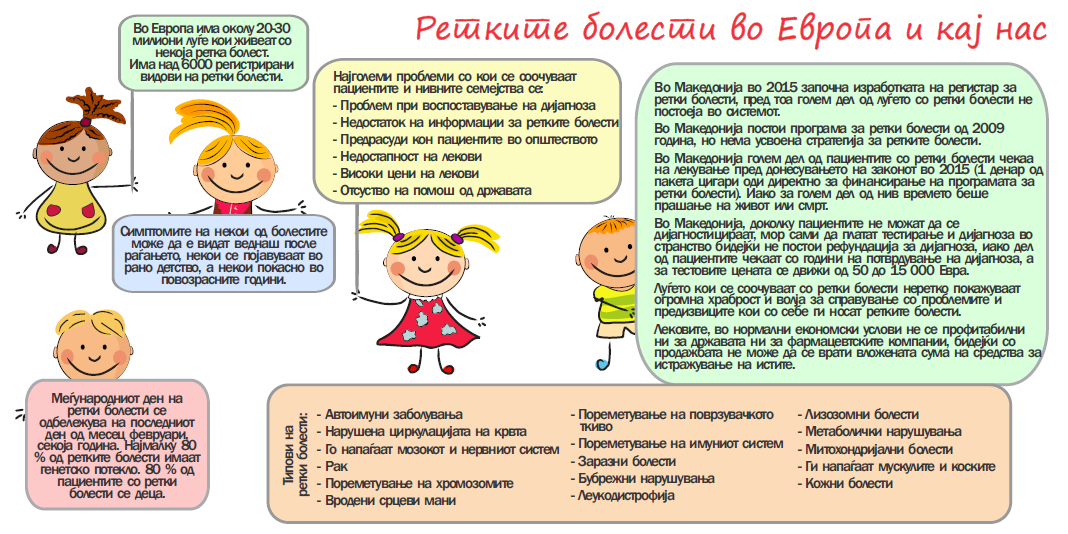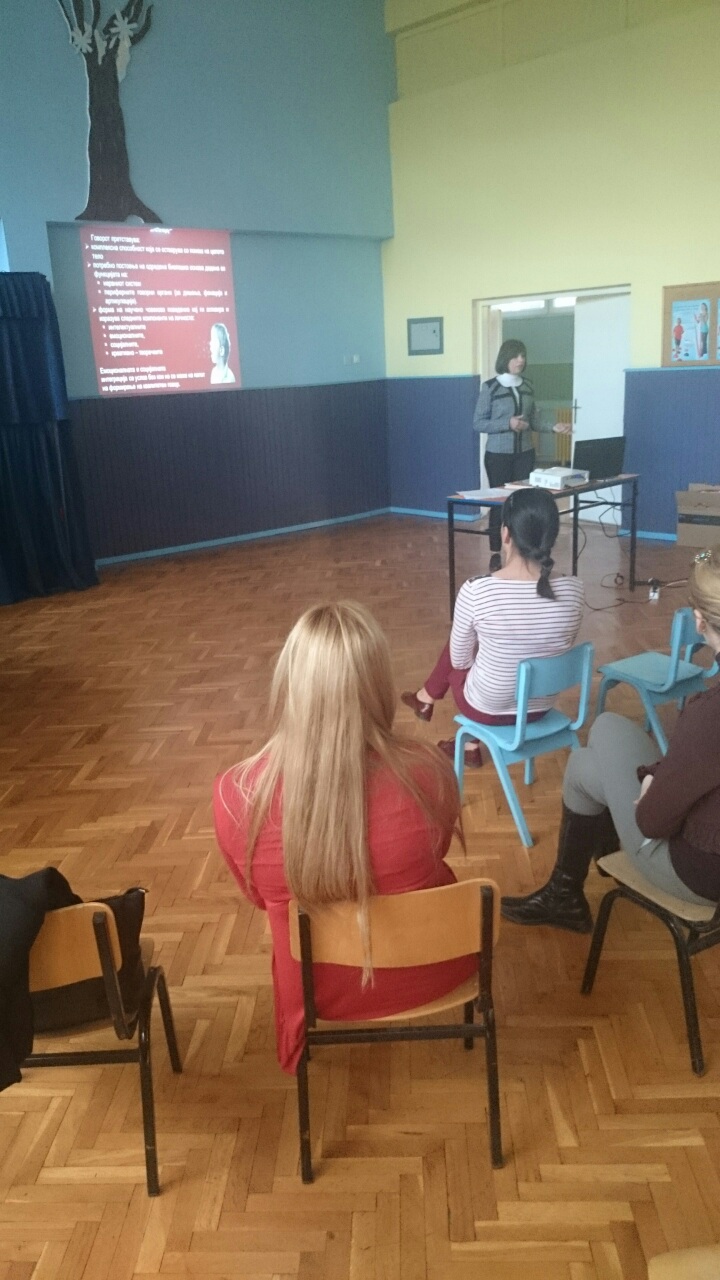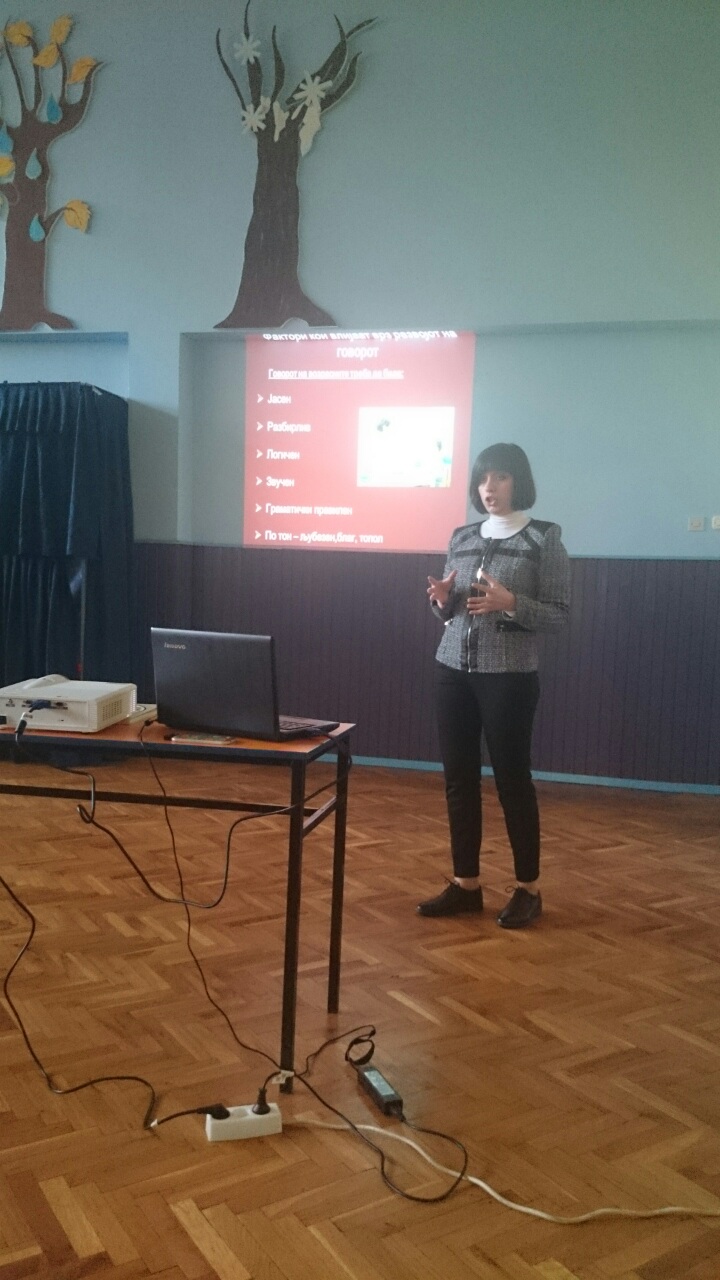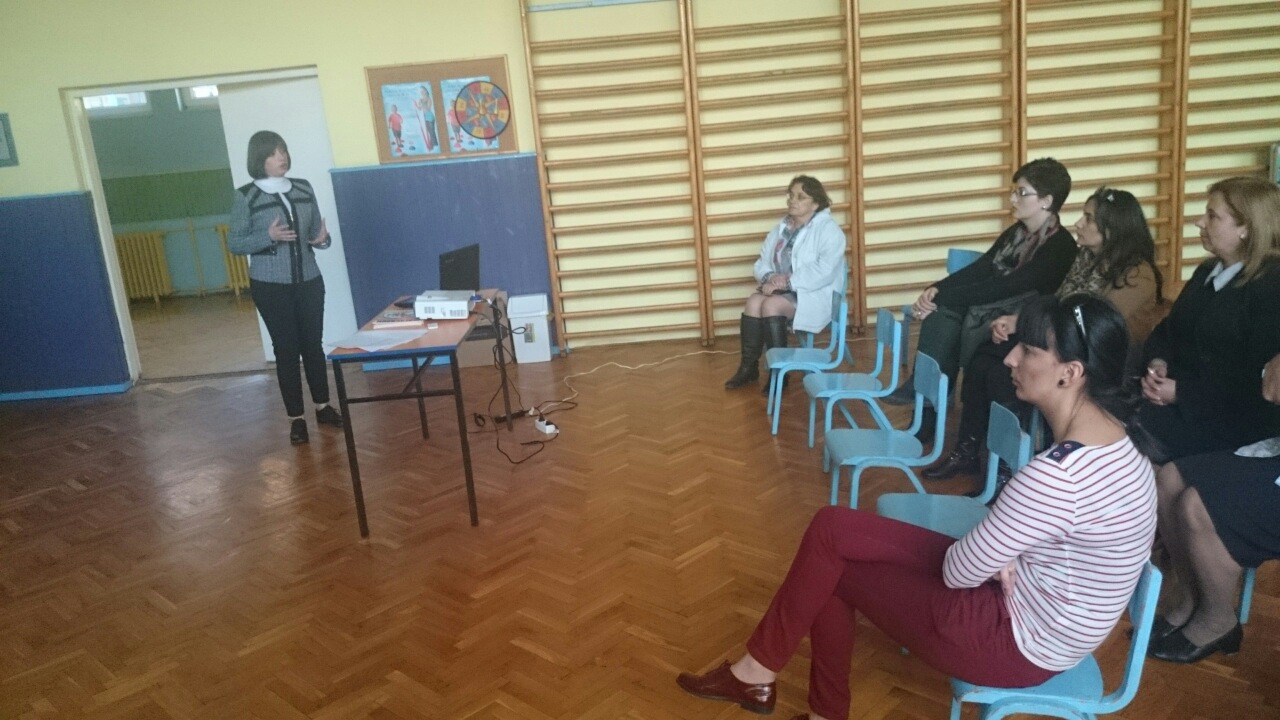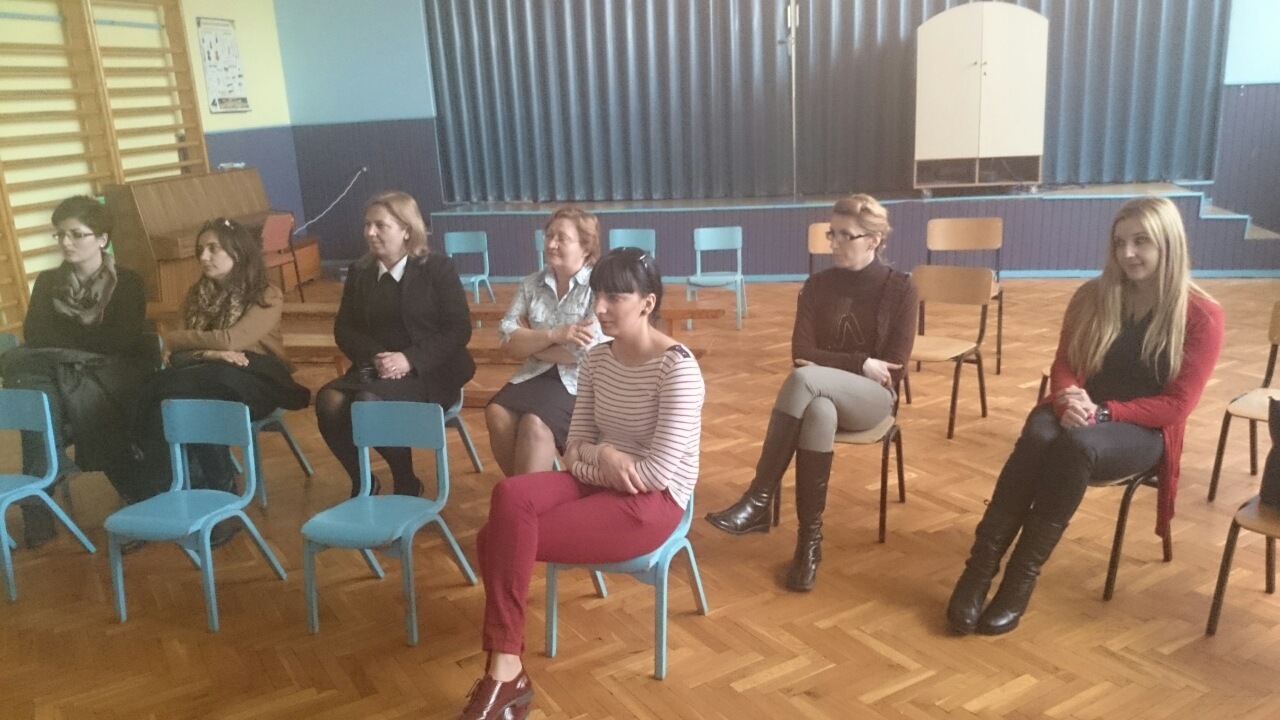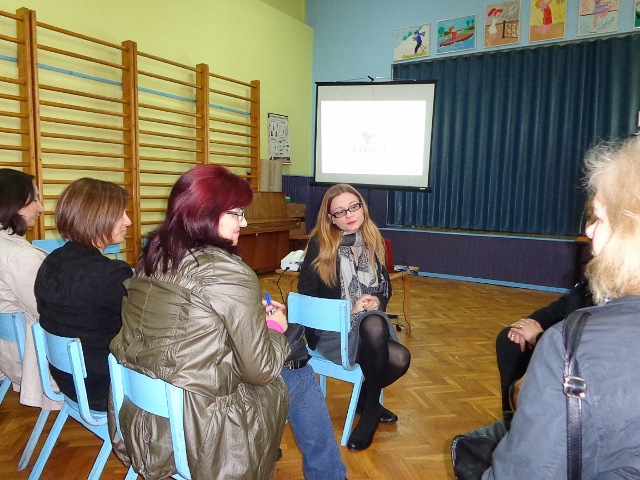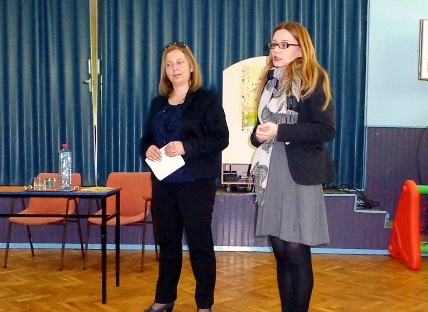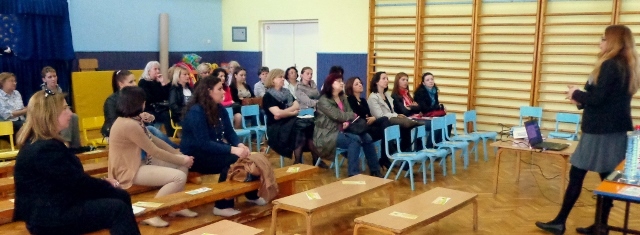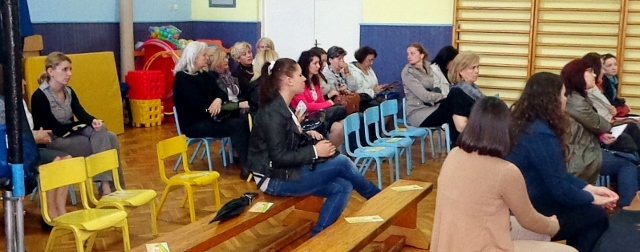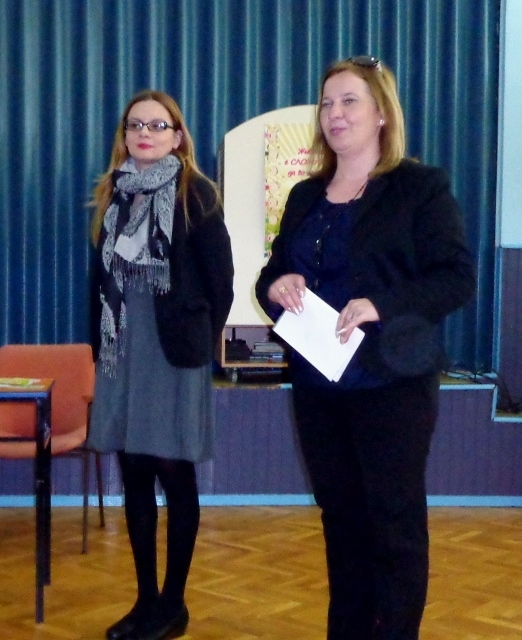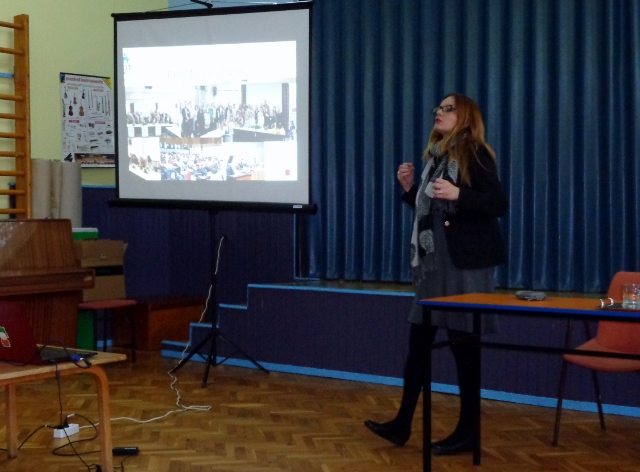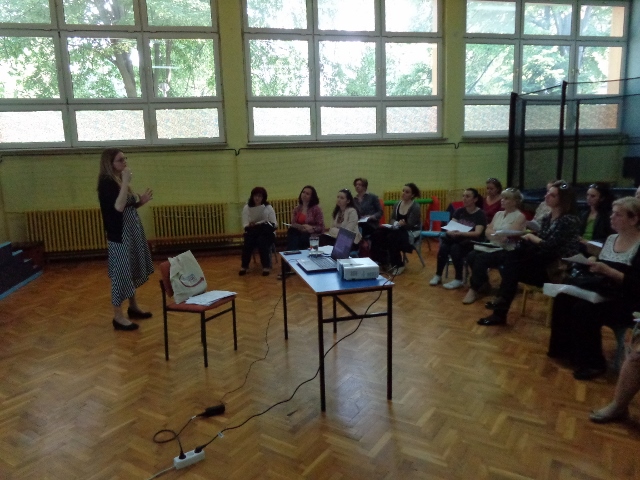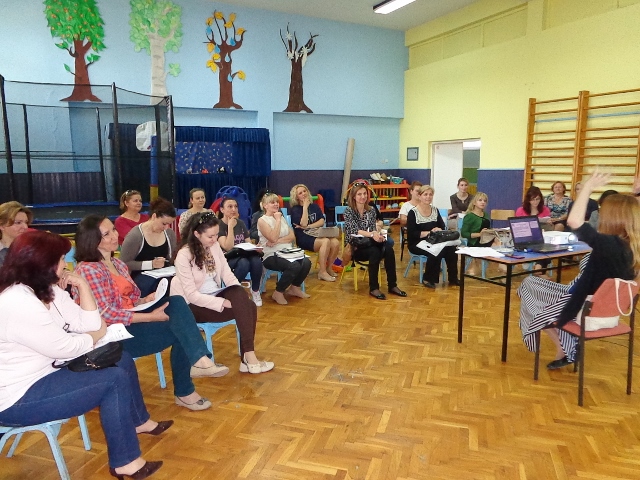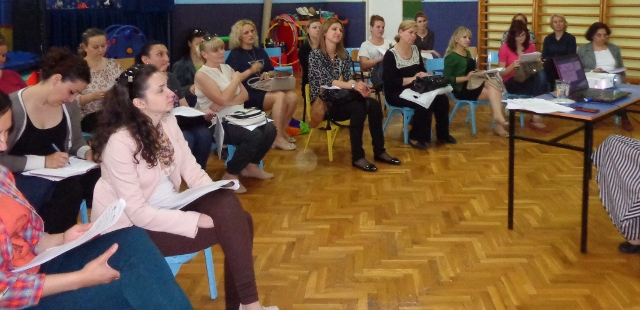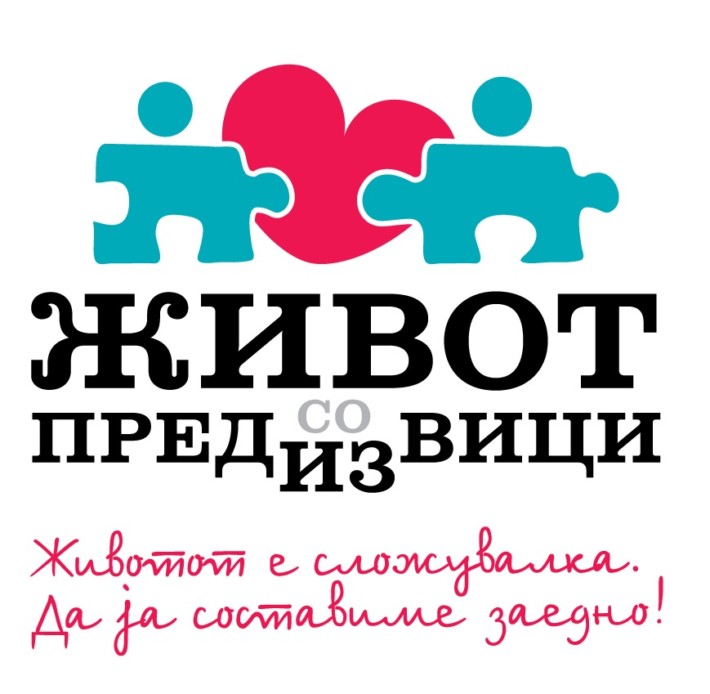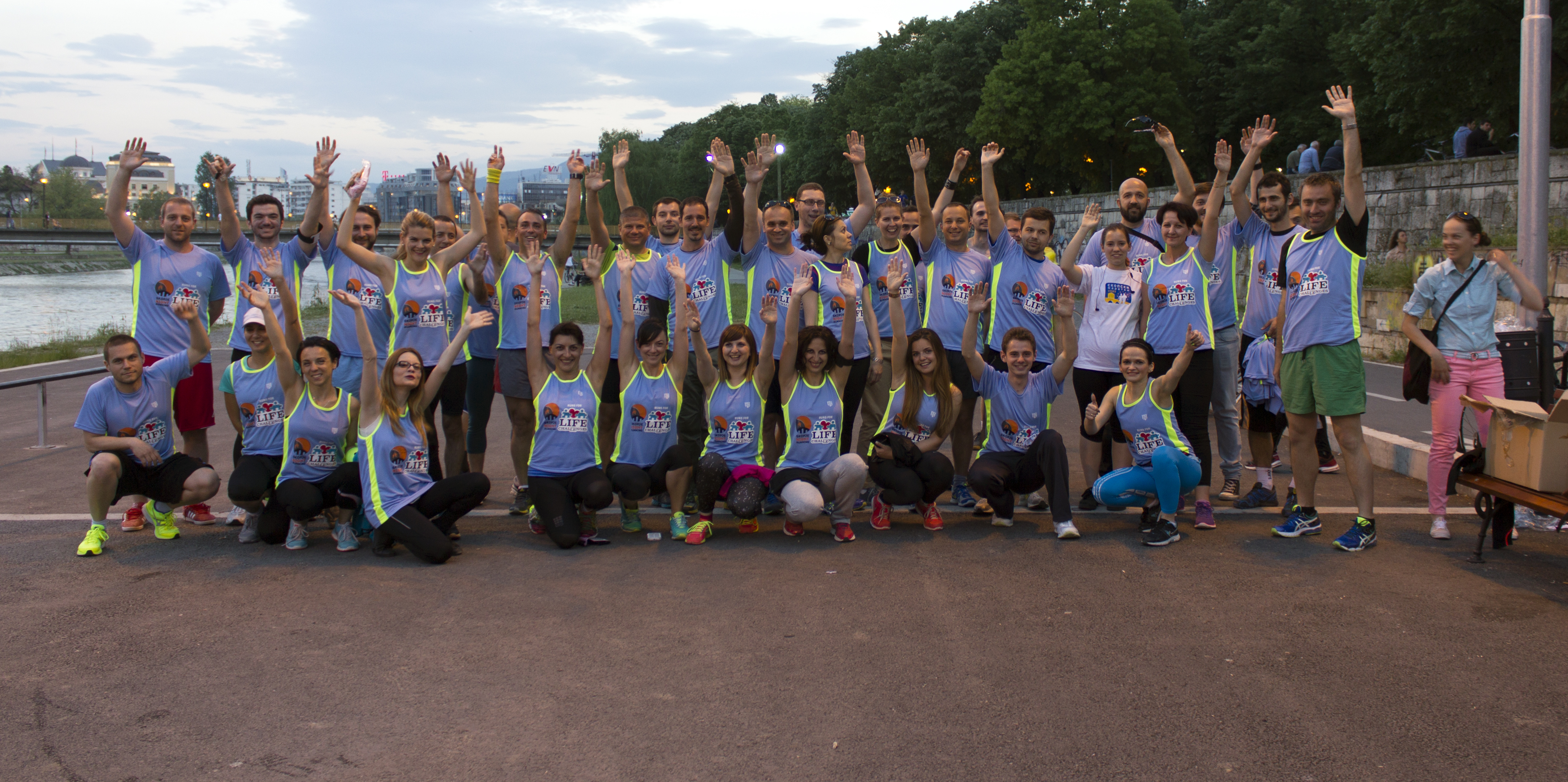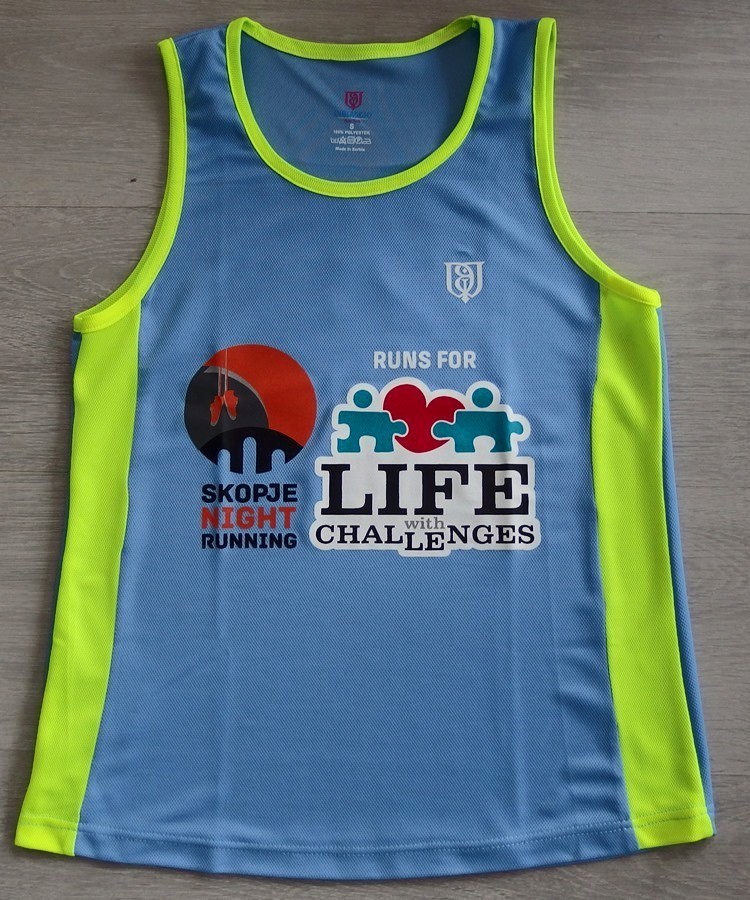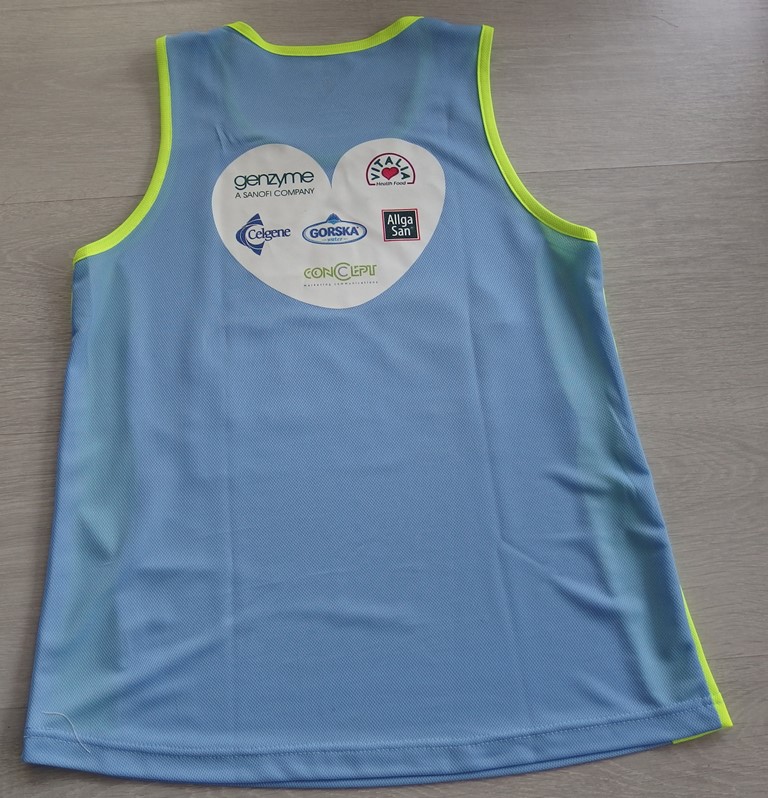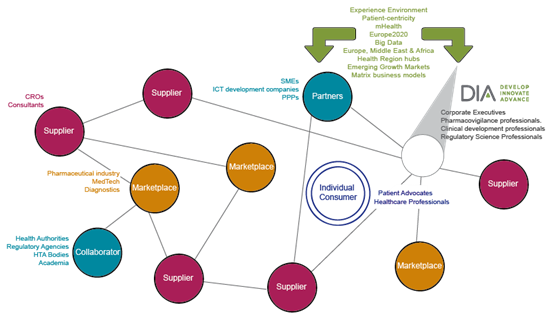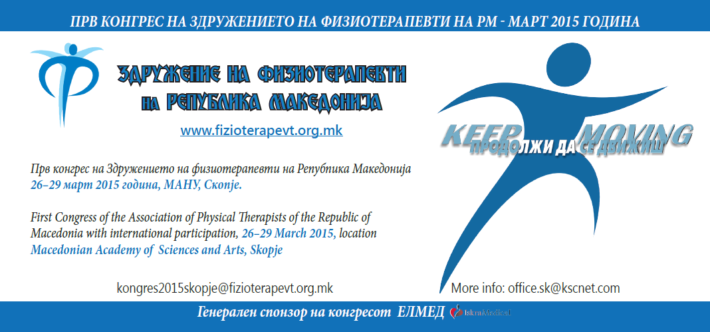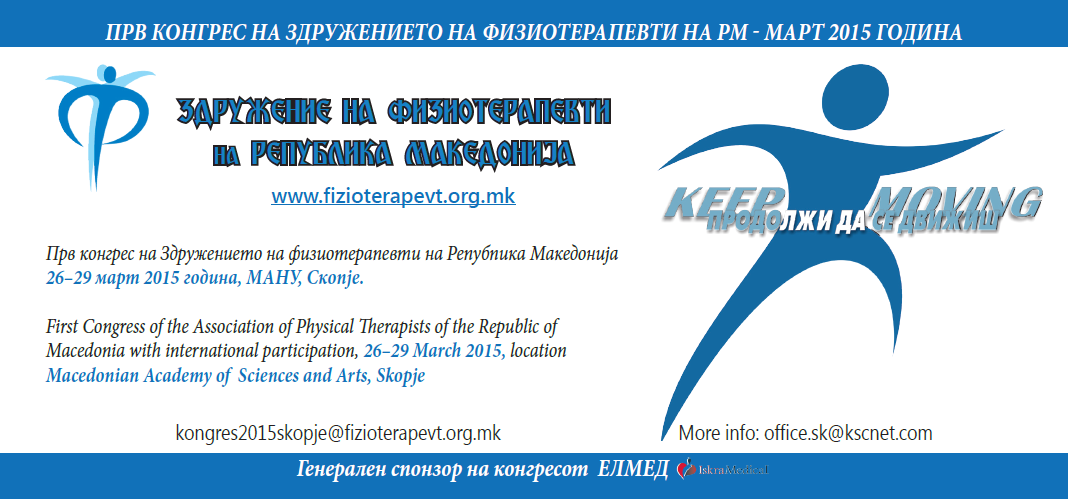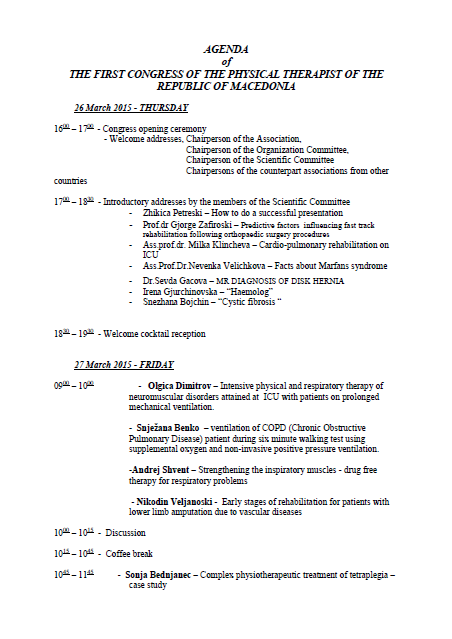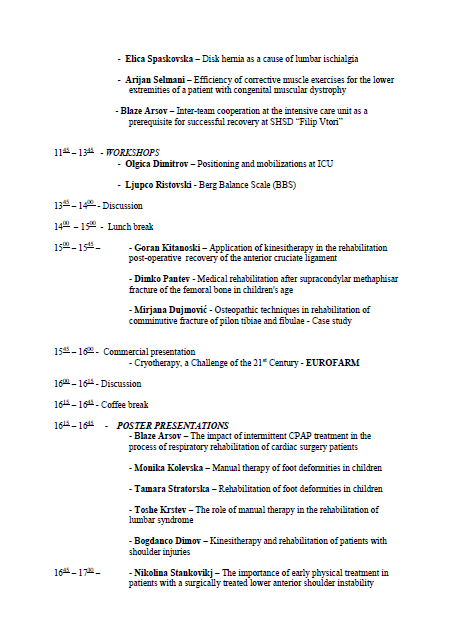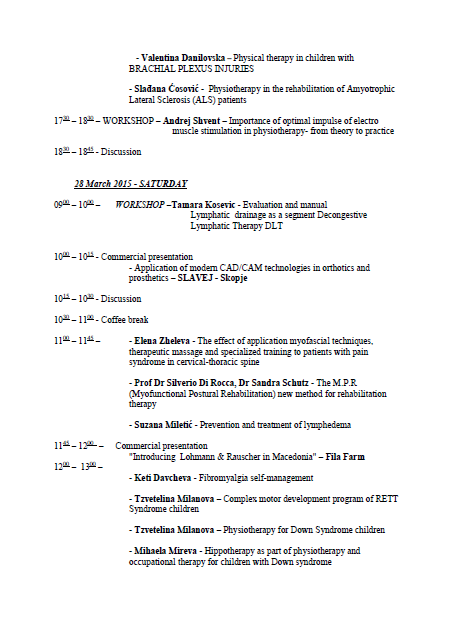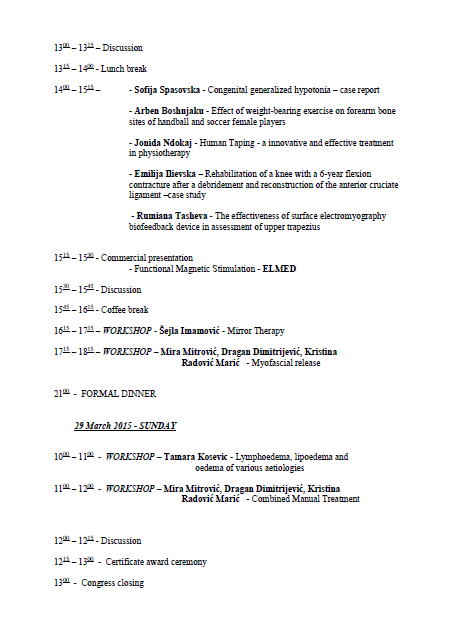This exhibition was prepared for Rare Disease Day, 2015, from the platform for activism “Lice v Lice”, in cooperation with “Holistic”, the Association of citizens for rare diseases Life With Challenges and the National Alliance for Rare Diseases of R. Macedonia.
Ognen Janeski and Azemina Kurtishi
“Rocketing”
Azemina is the first patient with a diagnosed rare disease Gaucher who has received appropriate therapy from the state.
Without it, this disease in its last stage brings the patients in a state where they cannot move, with discomfort and growing of the liver, osteoporosis and foreseen short lifespan.
Timely diagnosis and proper therapy and the life that was once threatened gets rocket fuel enough to reach the stars.
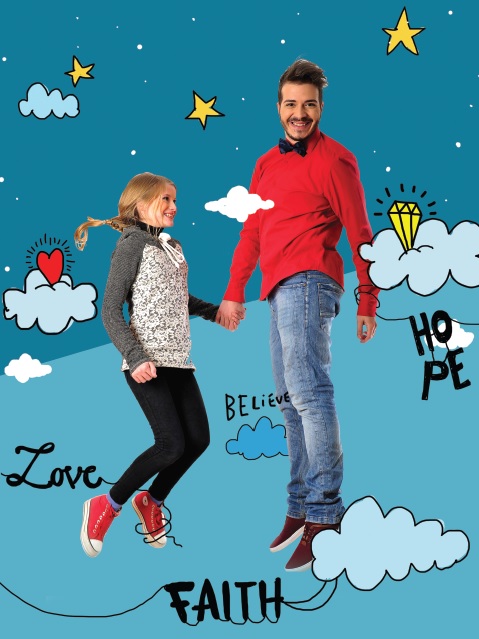
Ana-Marija and Vera Miloshevska
“Embrace rarity”
Delayed development, affected coordination, breathing, lowered communication and cognitive skills are the characteristics of the RET syndrome, a disease that affects only the female gender.
The colours in Ana-Marijas daily life are difficult to imagine.
Our world, on the other hand, through her eyes seems a bit more predictable; uninterested, uninformed, cold; faces almost lifeless.
What it needs to bring these two worlds together is an embrace, a look, understanding.
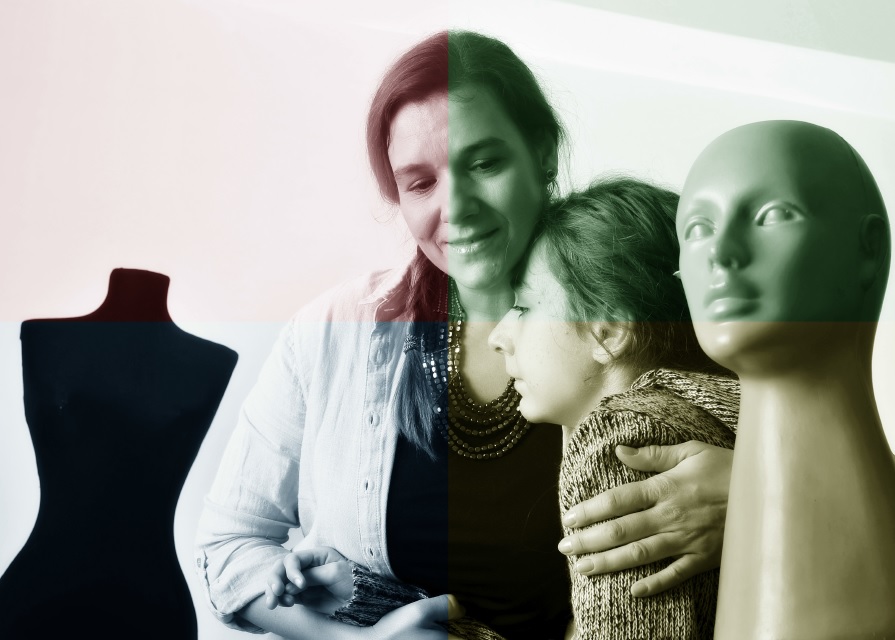
Marko Noveski and Andrej Arsov
“Do Hurry up!”
Long and winding is the path of people with rare diseases through the labyrinths in which they fight for the right diagnosis for which they sometimes wait for several years.
Andrej was diagnosed with Alagille syndrome, a disease that attacks the bile ducts, the liver, the heart and other organs, in the first two months after the symptoms occurred.
He and Marko through the game they invented then and there and called it “Confusion” call for initiatives for equal success in the diagnostics of rare diseases.
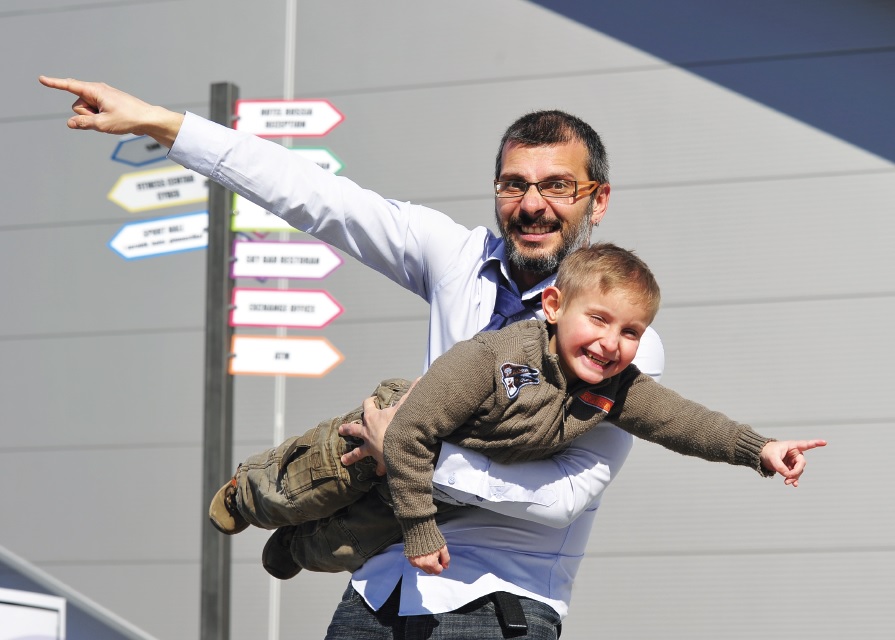
Iva Petrevska and Dani Dimitrovska
“A bell in a bubble”
A gentle touch, pressure, tiny injury or scratch is a threat to Iva’s skin, as gentle as a bubble. The slightest daily childhood activities are the reason for painful sores on her body that require constant care and dressing; and very often the mucosa of internal organs is affected.
Presently there is no official therapy for epidermolysis bullosa

Viktor Dimitrijoski and Bubo Karov
“Pancakes? No, thank you”
By his appearance and interests Viktor is no different from his peers, but he is different in something else. In his life he has never tasted chocolate, pancakes, ice-cream, walnuts, eggs, soy, meat or white bread. Since he was born he is on a special diet which is extremely expensive. The inability of his organism to process the intake of proteins in the usual way renders him nervous, angry, aggressive and scared of places with too many people and in advanced stages the disease phenylketonuria can bring to physical and mental disability.

Gjurgica Kaeva and Beni
“Blue Lips”
The oxygen is a luxury, as she says. The slightest physical effort, walking, climbing stairs, captures Gjurgica’s breath and the blue lips are the first accompanying sign of this disease.
Pulmonary hypertension is a difficult, progressive disease which first endangers the work of the lungs and then the heart.
It is a disease that can affect all ages and the treatment is very expensive.
The disease does not choose an age, it can be congenital or acquired.
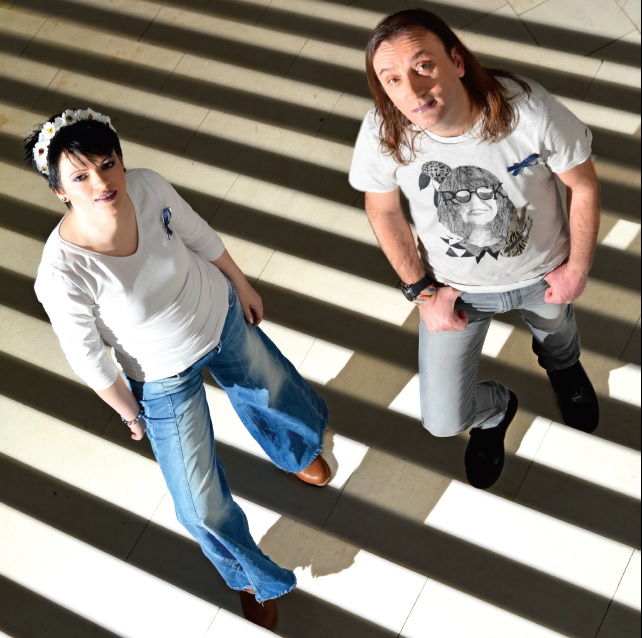
Dejan Angjeleski and Indira Kastratovik
“Challenge”
Swellings on different parts of the body make Dejan’s daily life extremely complicated. The simplest movements can be extremely painfyl and the everyday activities impossible to perform. Some of the swellings can be life-threatening, especially those on the throat or the respiratory tract. The first signs of the disease HAE can occur during childhood and/or adolescence. The medicine has not yet been discovered for this rare disease, for which there are treatment therapies, unfortunately none of them is available in Macedonia.
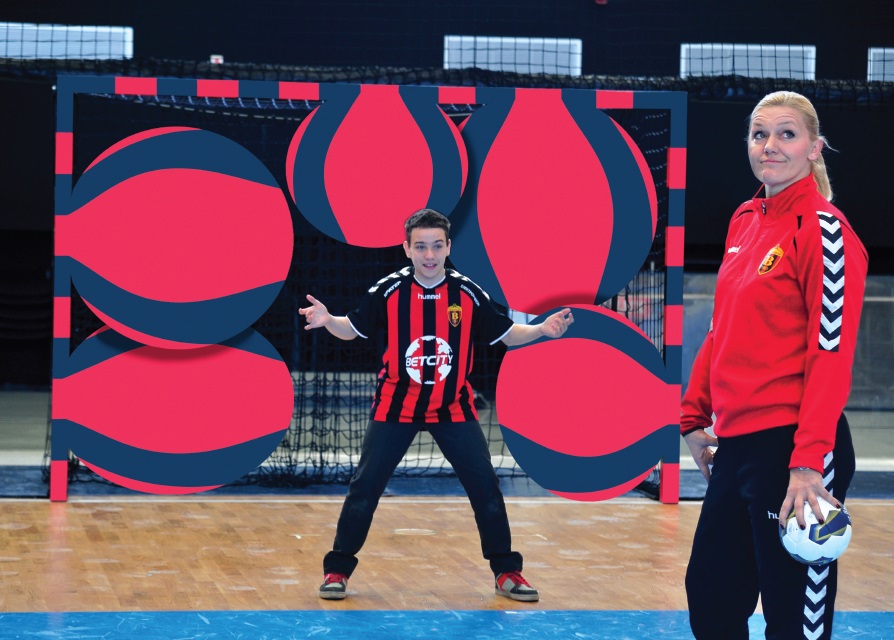
Pece, Marta and Viktorija
“Band”
Because of the FOP disease Viktorija’s muscles turn into bones and now she is in a fixed position in her electronic wheelchair.
Strumpell’s syndrome, on the other hand causes muscle atrophy, and thus movement becomes more and more difficult for Marta.
These lovely girls with typical teenage interests love music, are constantly on Facebook and Viber and enjoyed the the make-up and singing for the joint melodious photo with Pece.
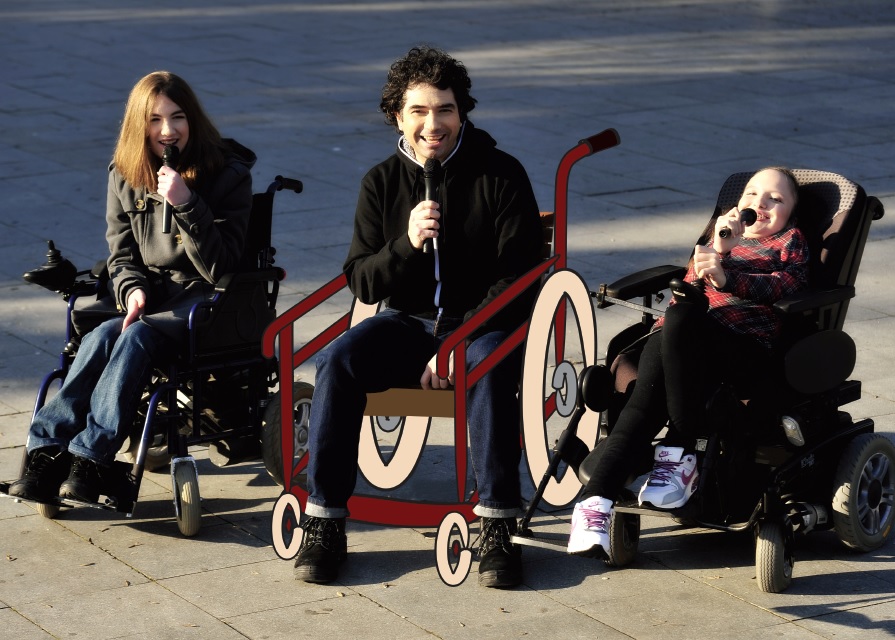
Slavche Shopovski and Toni Zen
“Trembling”
Affected coordination, trembling of hands and other uncontrolled movements are the consequences of Wilson’s disease of which 15 people suffer in Macedonia, and the disease occurs between the ages 6 and 12.
Slavche’s organism instead of excreting the excess copper, which cells use for life functions, accumulates it in the liver creating free radicals, which cause problems for the other organs and the brain.
He mustn’t do sports and the medications he has to take are not on the positive list of medicines nor are they registered in the country.

Vesna Aleksovska and Tanja Kokev
“Distance”
A slightly stronger embrace was enough reason for a broken bone or a bruise on her body.
The lack of enzyme brings to the accumulation of gaucher cells in the organs and in the bone marrow. Because of that the organs increase in size and the bones are prone to fracturing. Bruises, fatigue, faintness are all daily possible symptoms of the people with untreated Gaucher’s disease.
Vesna has been receiving therapy for five years now, her state is stable now and she leads a normal life.
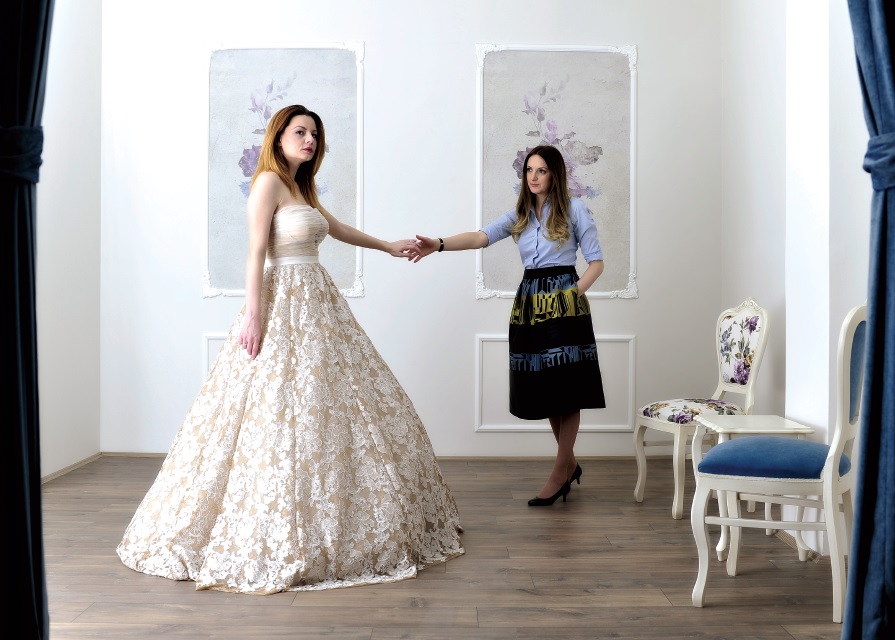
Bojan Chunde and Rebeka
„1:10.000“
Hemophilia cannot be transmitted as cold because it is hereditary or occurs due to genetic change.
If Bojan gets hurt, his wound won’t bleed faster but longer than usual because of the weak factor of coagulation of the protein responsible for coagulation of blood. The disease occurs at 1 to 10.000 people and is characterized with long external and internal bleedings.
In Macedonia there are around 300 registered persons with hemophilia.
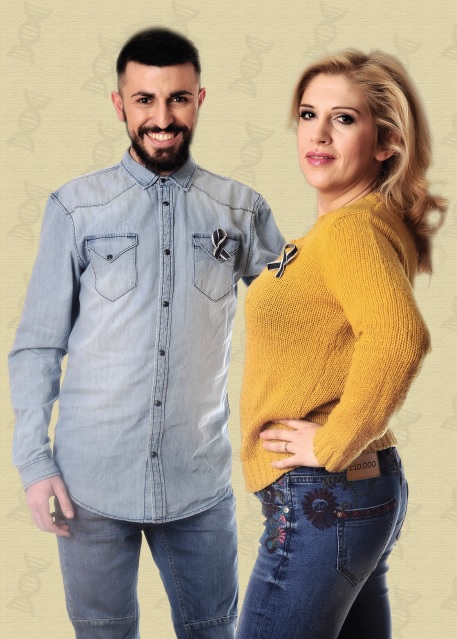
Igor Parmakovski and Kristina Arnaudova
“I understand you!”
Pain, discomfort and problems with digestion of food are the main consequences that Igor feels facing Crohn’s disease, which is manifested with inflammation and swelling of the digestive tract. Most of the symptoms of this disease attack the gastrointestinal system, from the mouth to the end of the large colon, but patients also report symptoms that affect the brain and the nervous system.
It is believed the removal of the colon is the cure for the patients with ulcerous colitis. However, the surgical procedure is the “cure” only after all conventional methods of treatment fail to lead to improvement of the state.
